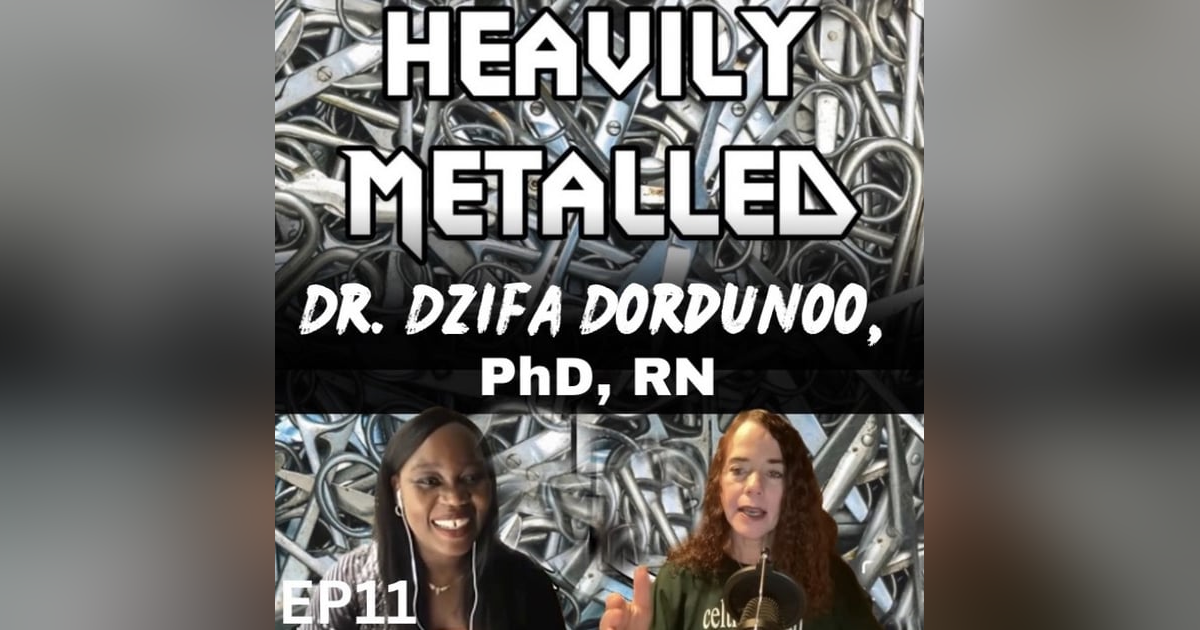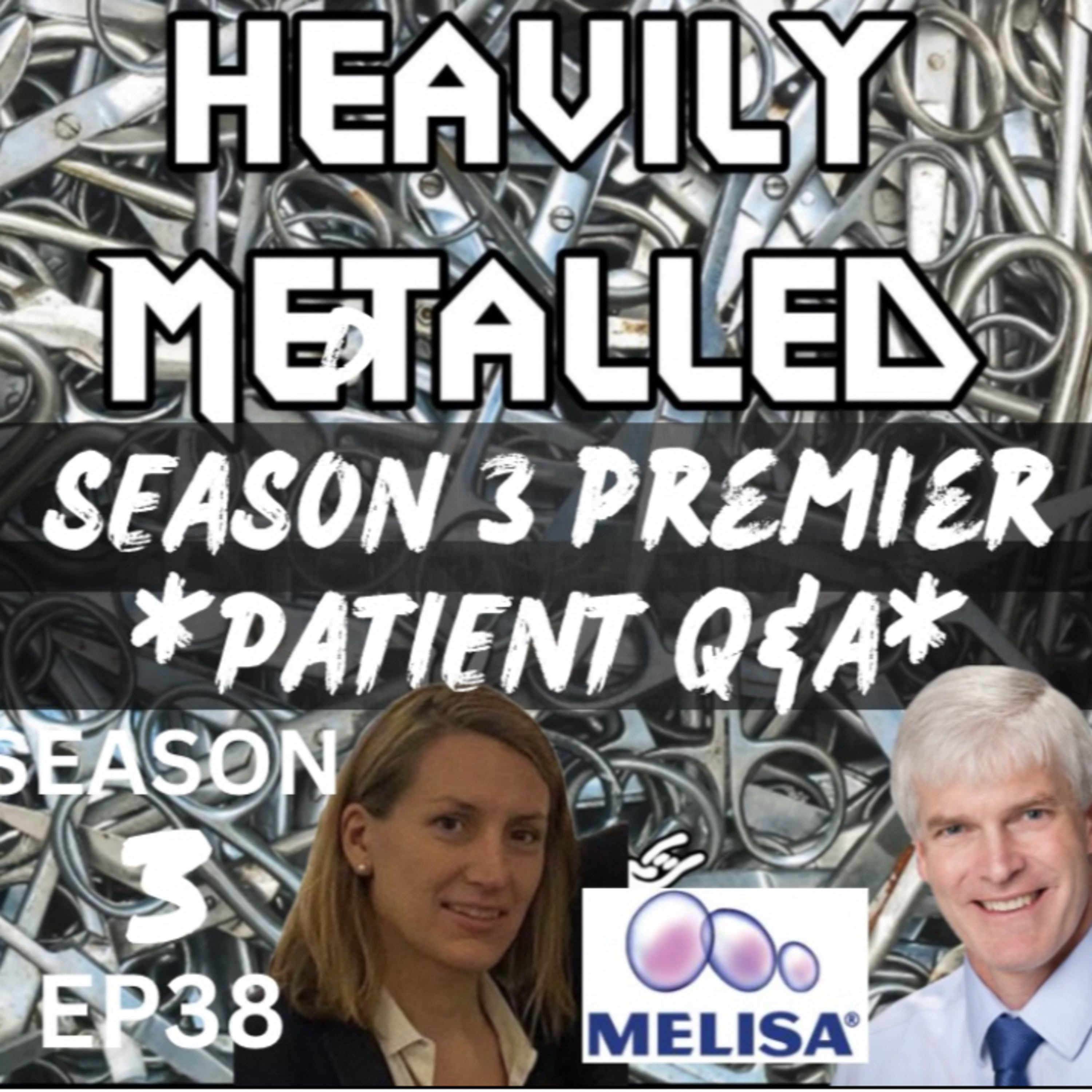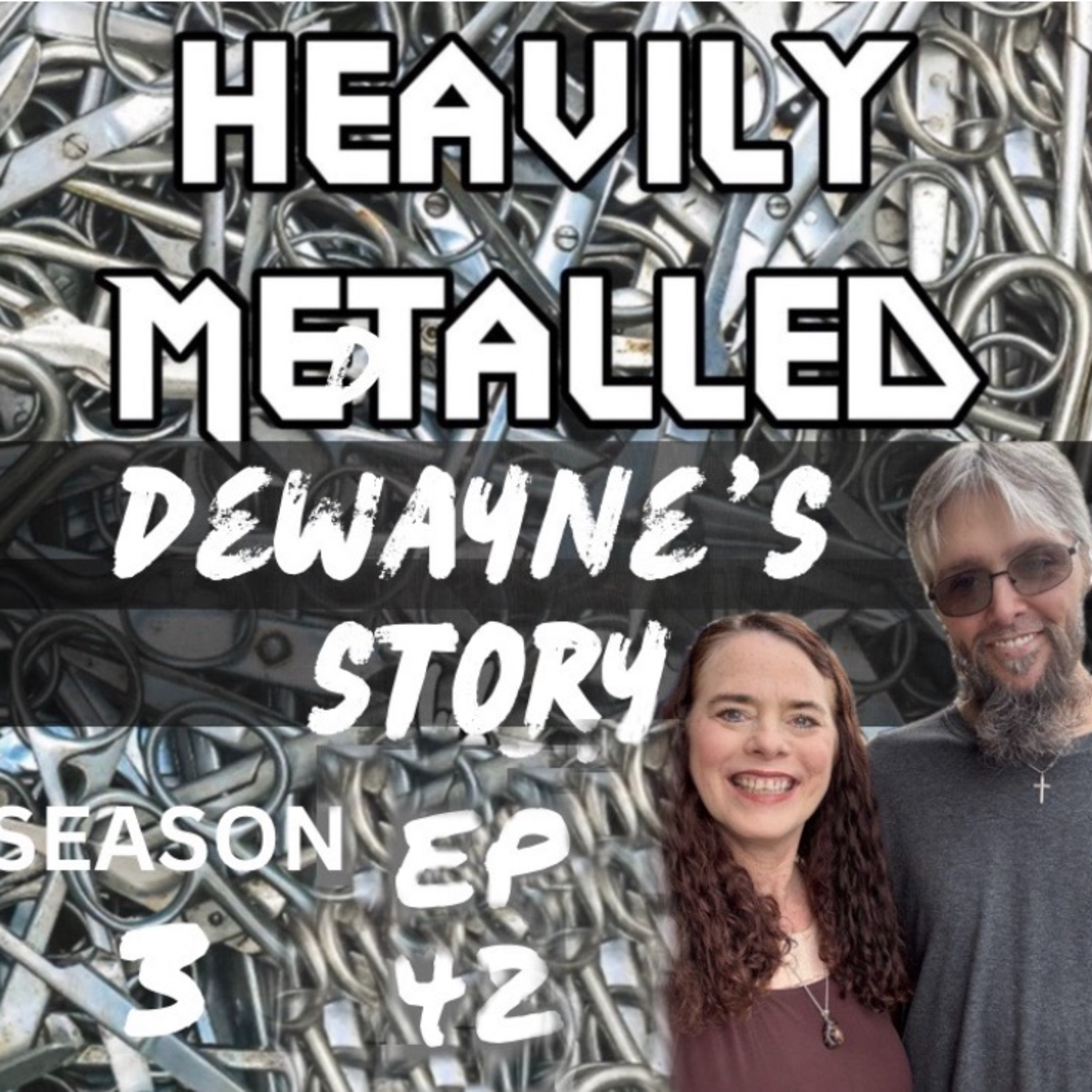EP11 - Clinical Experiences, Education Efforts & Upcoming Research Studies w/Dr. Dzifa Dordunoo, PhD., RN

EP11 - Clinical Experiences, Education Efforts & Upcoming Research Studies w/Dr. Dzifa Dordunoo, PhD., RN
Dr. Dzifa Dordunoo is an Associate Professor at the University of Victoria School of Nursing in B.C., Canada. With over 20 years of clinical experience in general medicine and coronary care units, spending the past decade as a nurse educator, after beginning her teaching career in 2011 as a clinical instructor at John Hopkins School of Nursing. She is the director of the University of Victoria Center for Evidence-Informed Nursing and Healthcare, A JBI Center of Excellence.
Dzifa shares experience and research studies in the realm of metal hypersensitivity, which began during the time of her doctoral studies with one of her cardiac care patients, when she became aware of, and investigated the patient’s metal allergy as a possible cause for patient's complications.
Dzifa then goes on to share her story of walking her son through a metal-allergy diagnosis to dental hardware and expresses the frustration of not being heard and taken seriously as a professional in the field, even once the situation was brought to full resolution of symptoms after the removal of the offending hardware.
After these experiences Dzifa started polling colleagues about their metal hypersensitivity knowledge, as well as sharing publications with them, quickly realizing that her curiosity and scientific musings were not met with equal excitement in the realm of her peers….with some even thinking she was a little “out there.”. Even wondering why something as simple as pre-screening patients for metal allergies was so difficult. Many didn’t believe in the science or current evidence, while others stated that screening was futile. Dzifa goes on to share her opinions on informed consent.
Dr. Dordunoo shares about her clinical studies, past and present, including several recently published papers, along with info about clinical trials now underway. One of her future goals is to create an implantable device registry. She also shares her thoughts on Metal Hypersensitivity as a future medical sub-specialty.
In this episode you will learn:
How knowledge of metal-hypersensitivity within the medical field is often misunderstood and under-reported.
That even providers within the field have difficulties convincing peers that metal hypersensitivity is real and a pervasive issue for many in the worldwide population.
About upcoming clinical advancements and trials, as well as proposed enhancements to medical device reporting.
~Links and Resources~
Articles:
Patient Journey Map: Metal hypersensitivity
Hypersensitivityhttps://journals.sagepub.com/doi/epub/10.1177/23743735231183576
Hypersensitivity in patients receiving metal implants: a scoping review protocol
Metal hypersensitivity screening among frontline healthcare workers—A descriptive study https://onlinelibrary.wiley.com/doi/10.1111/jocn.15571
Youtube:
Hypersensitivity reactions to metal implants https://youtu.be/NGOfWOuMHYw
Consenting patients about metal hypersensitivity https://youtu.be/ItdSr7gV_oU~To learn more visit HeavilyMetalled.com.
~
Check out the “Heavily Metalled” resource page: https://www.heavilymetalled.com/p/patient-resources/
~
Follow Heavily Metalled on Facebook: https://www.facebook.com/HeavilyMetalled
~
Follow Heavily Metalled on Instagram: https://www.instagram.com/heavilymetalled/
~
Subscribe to Heavily Metalled on YouTube: https://www.youtube.com/@HeavilyMetalled
~
Check out our sponsor MELISA.org
***Many WONDERFUL, supportive special-interest communities exist for metal allergies and diet, hardware issues, medical devices, etc., online and on social media. They have many resources and often act as a collective think-tank. I owe many parts of my recovery to knowledge obtained in such groups. Search keywords to join these groups and find your tribe!***

Researcher












